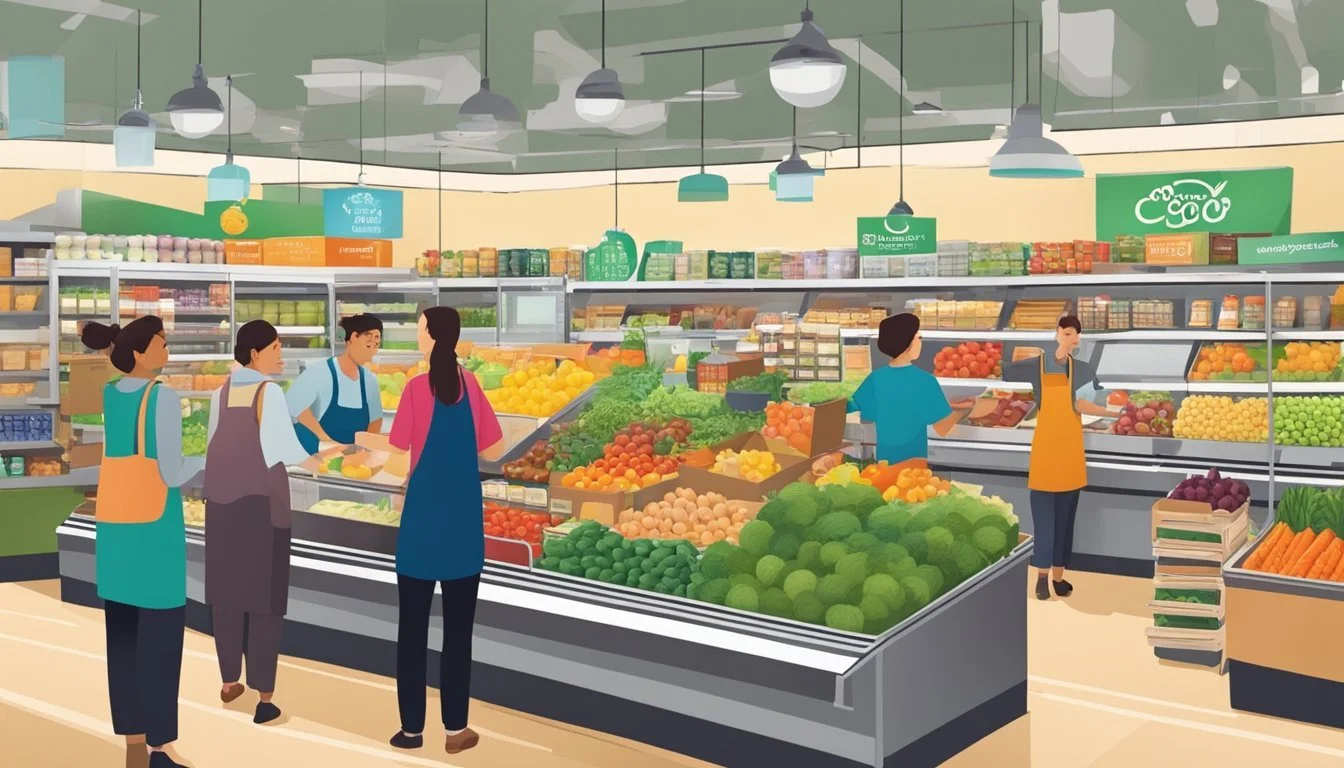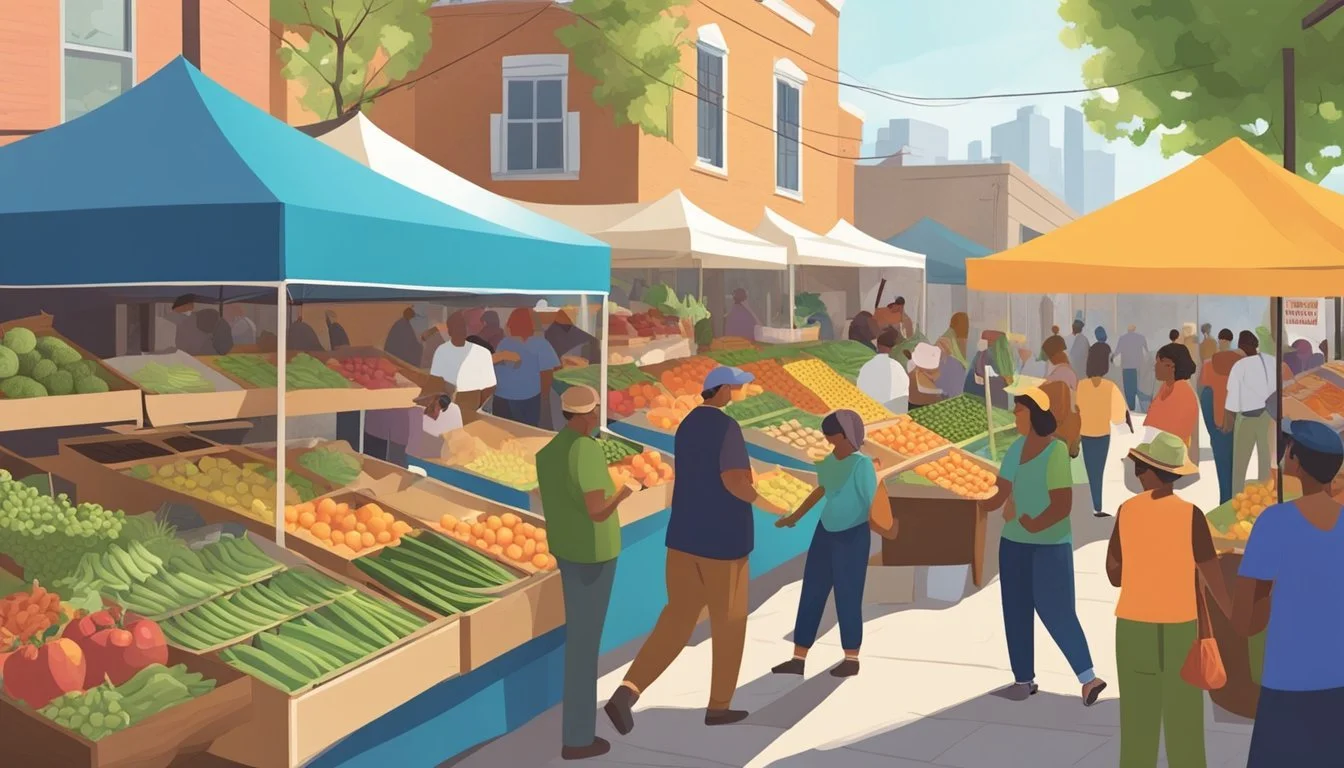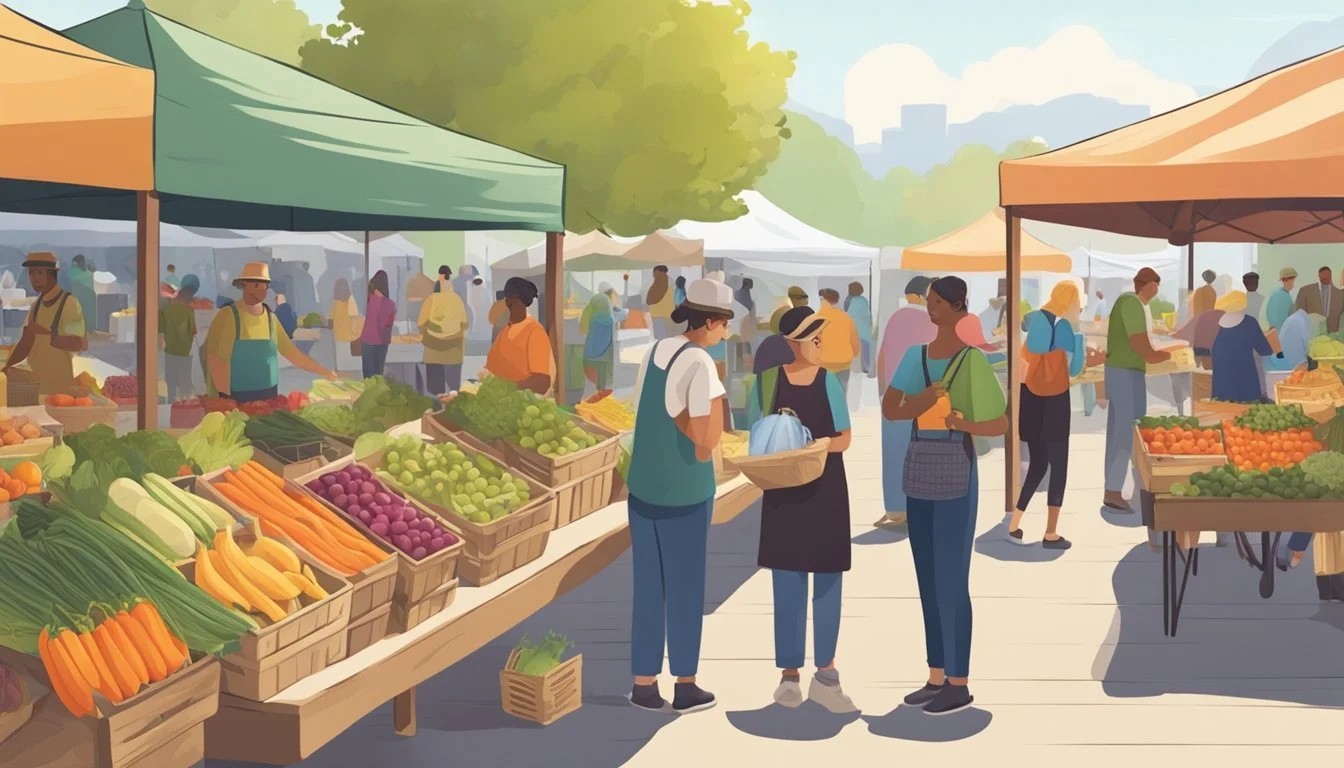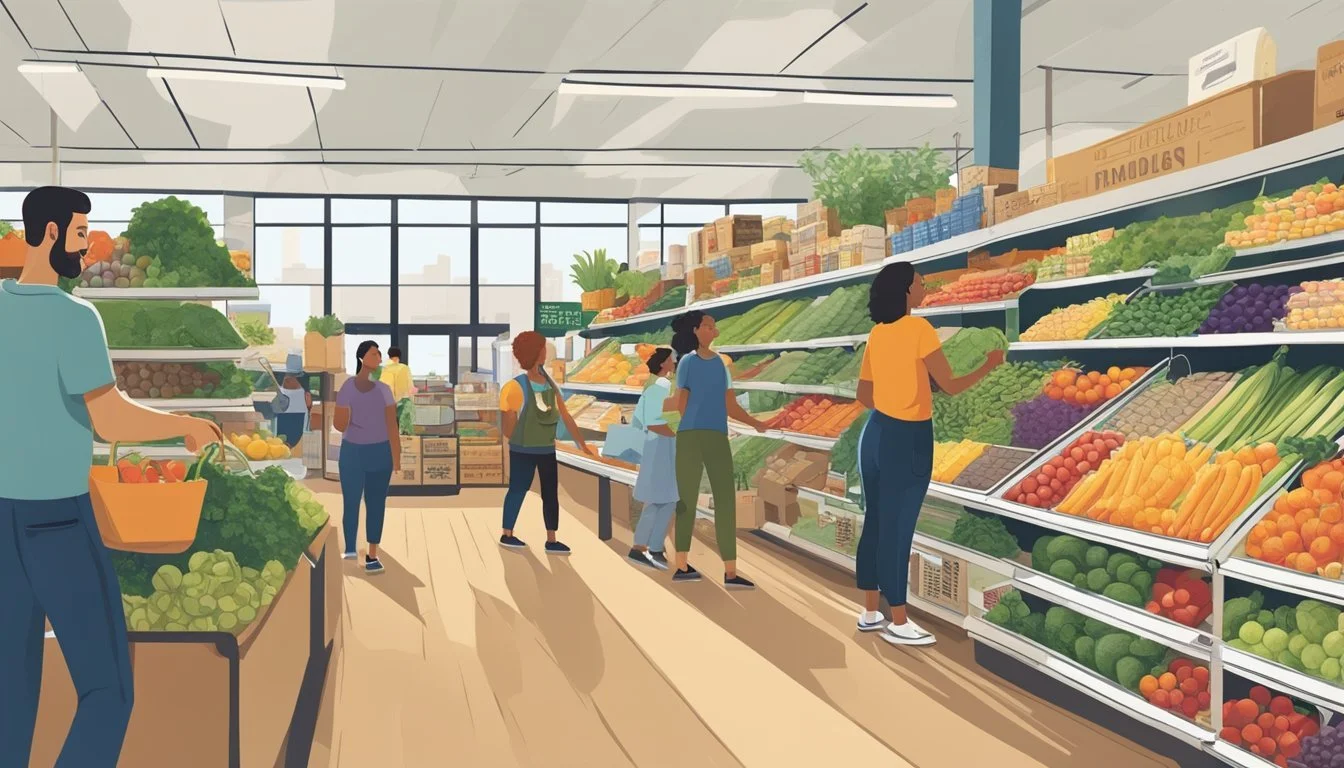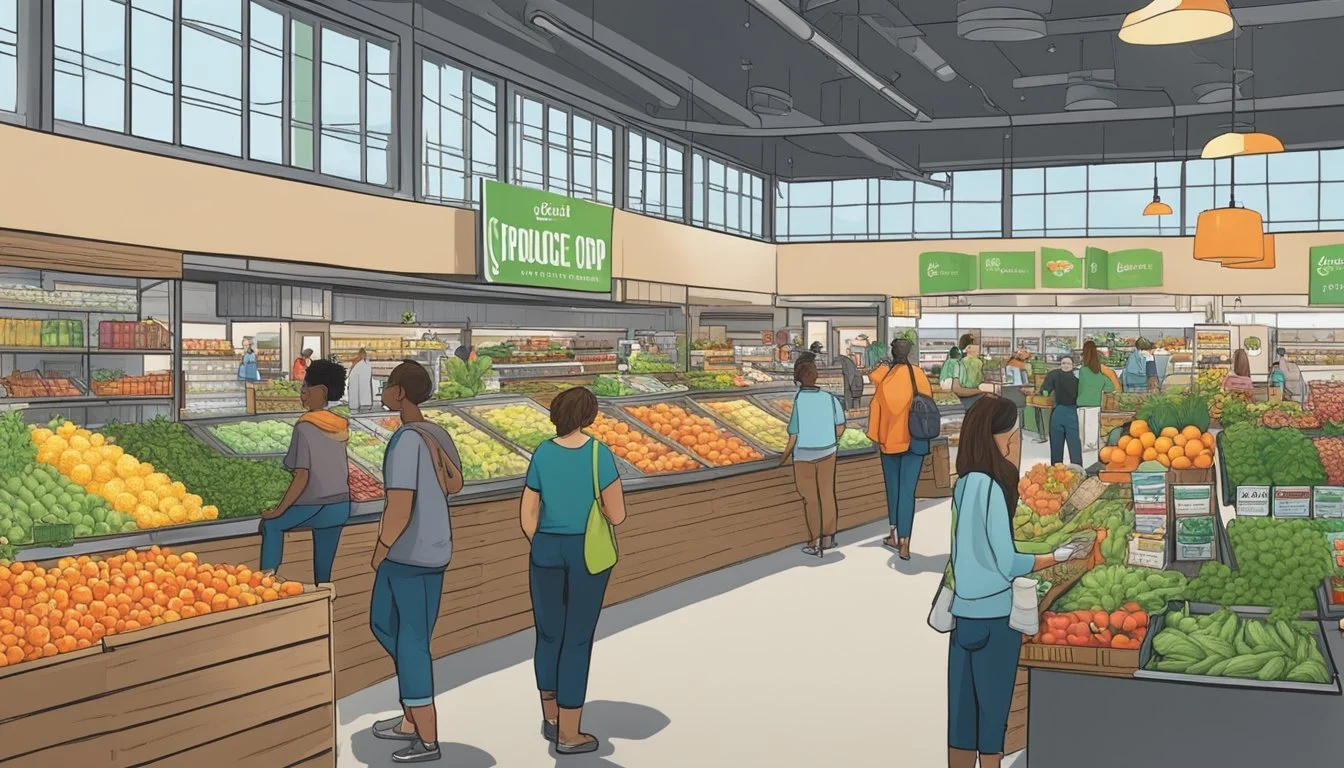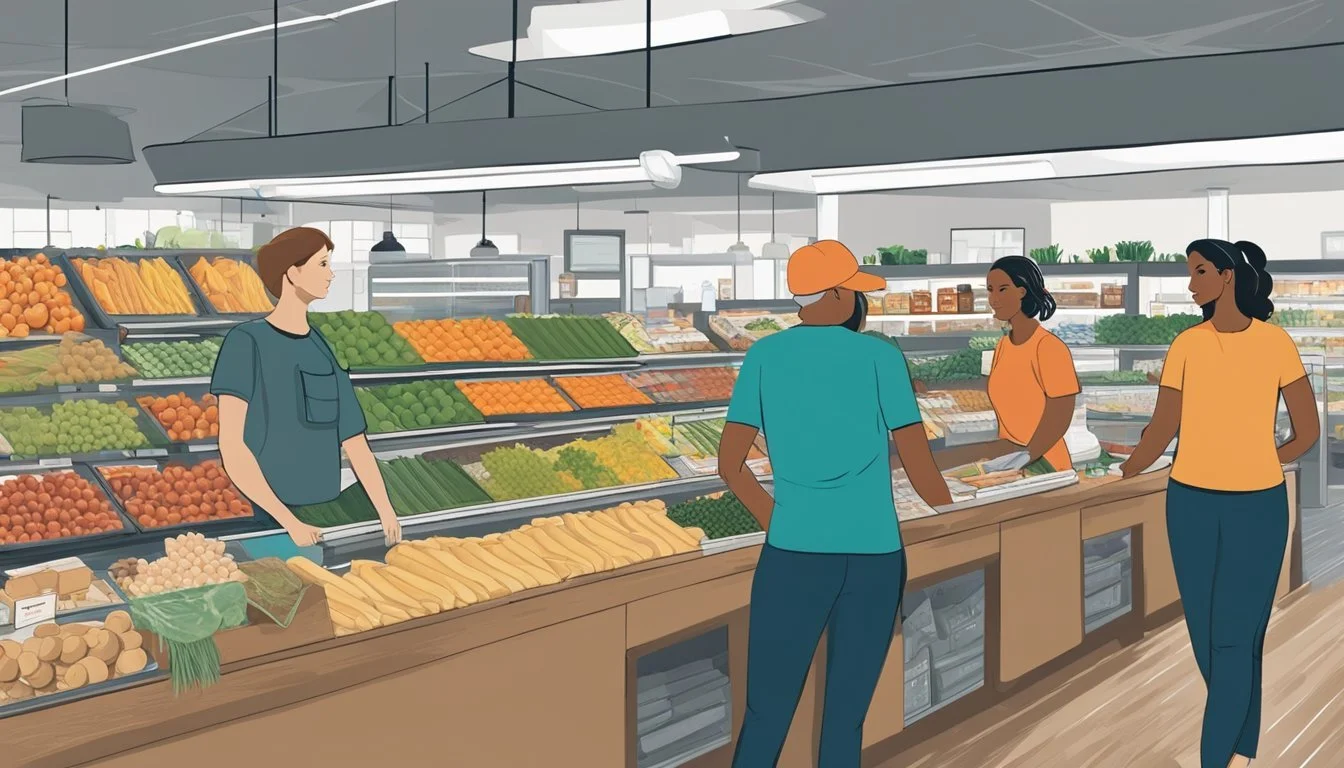Guide to Food Co-Ops in Oklahoma City, OK
Your Essential Resource for Community Sourced Produce
Food co-ops in Oklahoma City offer a unique alternative to traditional grocery shopping, connecting consumers directly with local farmers and producers. These cooperative entities operate on a membership basis but often welcome the general public to purchase goods as well. They are known for providing a wide array of locally sourced products, ranging from fresh produce to pasture-raised meat and dairy, embodying a commitment to sustainable agriculture and community support. Food co-ops prioritize not just the economic loop within the local context but also the health and social benefits that come from consuming fresh, minimally processed foods.
The Oklahoma Food Co-op, for instance, is notable for being one of the first of its kind in the United States to connect Oklahomans with a vast selection of local offerings through an online platform complemented by a volunteer delivery system. It sets a precedent for how food co-ops can leverage technology to enhance accessibility and convenience for their members. Shopping at a food co-op in Oklahoma City is not just purchasing food; it's an investment in the local economy, an act of supporting small-scale farms and businesses, and a step towards a more personalized food experience.
In Oklahoma City's food co-ops, the focus is on quality and community rather than merely on price and convenience. The Conscious Community Co-op and the Farmer’s Public Market serve as examples of such establishments where you can find not only fresh, local produce but also a sense of camaraderie and shared values. It is this combination of economic practicality and communal ethos that makes food co-ops a cornerstone in Oklahoma City's food scene.
What Is a Food Co-Op?
A food co-op is a member-owned grocery store operated by and for its members to meet their collective needs. In Oklahoma City, as elsewhere, these entities prioritize community engagement and sustainably sourced products.
Principles of Co-Ops
Food co-ops operate on a set of established principles that distinguish them from conventional grocery stores:
Voluntary and Open Membership: Co-ops are open to all individuals willing to accept the responsibilities of membership.
Democratic Member Control: Each member has equal voting rights (one member, one vote).
Member Economic Participation: Members contribute equitably to, and democratically control, the capital of their co-operative.
Autonomy and Independence: Co-ops are independent organizations controlled by their members.
Education, Training, and Information: Co-ops provide education and training to members to contribute effectively to the development of their co-operative.
Cooperation Among Cooperatives: Co-ops serve their members most effectively by working together.
Concern for Community: Co-ops work for the sustainable development of their communities.
History of Food Co-Ops
The history of food co-ops stems from the realization that a group of people can leverage collective buying power for mutual benefit. In the fall of 2003, community members in Oklahoma City established one such cooperative. Starting with modest beginnings, a small group of consumers and volunteers gathered in a church basement to purchase local products. This initial success laid the foundation for what would, seven years later, be a thriving food co-op with over 3,000 members, illustrating the community’s commitment to supporting local producers through a cooperative model.
Benefits of Joining a Food Co-Op
When one joins a food co-op in Oklahoma City, they tap into a hub of economical, healthful, and community-centric advantages. These benefits are not just perceived but experienced on a local level.
Economic Advantages
Members of a food co-op often receive financial benefits such as shopping discounts and potential patronage refunds. These refunds are a portion of the co-op's profits returned to its members based on their purchases. They are directly tied to the economic success of the store, making consumers stakeholders in the business.
Shopping discounts: Save on groceries as a member.
Patronage refunds: Earn back a portion of expenditure.
Health and Quality
Food co-ops prioritize access to fresh, local produce which often leads to a healthier lifestyle. By supporting local farmers, co-ops ensure that fruit, vegetables, and other products are picked at peak ripeness, providing maximum nutrition and flavor to the community.
Local produce: Fresh, seasonal goods for optimal nutrition.
Healthy options: A variety of foods to support a balanced diet.
Community Involvement
Being part of a food co-op fosters a sense of purpose and belonging. Members can engage in decision-making and contribute to the store's direction. This creates a unique environment where people bond over shared interests in sustainability, wellness, and local resilience.
Decision-making: Have a voice in co-op governance.
Community connections: Build relationships with like-minded individuals.
How to Join a Food Co-Op
Joining a food co-op is a commitment to both a healthier lifestyle and fostering community. This section outlines the crucial steps members need to follow to become a part of a food co-op in Oklahoma City, OK.
Membership Types
There are typically two types of memberships when it comes to food co-ops: paid-in-full member-owners and payment plan member-owners.
Paid-in-full Member-owner: This option requires a one-time, upfront payment. The Oklahoma Food Co-op, for example, requires a refundable capital investment, generally around $100, plus a small join fee.
Payment Plan Member-owner: Alternatively, members might choose a payment plan wherein they pay a nominal join fee and contribute monthly until they reach the full membership investment amount.
Membership Process
The process to join a food co-op typically involves the following steps:
Visit the Co-op: Prospective members must visit the co-op in person.
Inquire at Customer Service Desk: Interested parties should start at the customer service desk to gather all necessary information about membership.
Complete Membership Forms: Fill out the required forms to apply for membership.
Select Membership Type: Decide between a paid-in-full or payment plan membership.
Payment: Pay the corresponding fees based on the chosen membership type.
Member Responsibilities
Members of a food co-op are expected to uphold certain responsibilities:
Active Participation: Members should actively participate in the community, which can include attending meetings and volunteering.
Community Engagement: Engaging with the co-op community helps to strengthen the ties and ensures the sustainability of the cooperative model.
Supporting Local Producers: By shopping at the co-op, members directly support local farmers and producers, aligning with the co-op’s mission to provide locally sourced, healthier food options.
By understanding the types of memberships available, following the outlined process, and accepting member responsibilities, individuals can successfully join a food co-op in Oklahoma City.
Local Food Systems
In Oklahoma City, food co-ops have become a vital link in supporting a sustainable local food ecosystem, facilitating relationships between consumers and local suppliers.
Sourcing from Oklahoma Farms
Local farms are the backbone of Oklahoma's local food systems. They play a critical role by providing a diverse range of fresh produce directly to food co-ops. Consumers benefit from the freshness of products such as vegetables, fruits, dairy, and meats, which are transported over shorter distances. This not only maintains nutritional value but also supports Oklahoma's agricultural economy.
Key points:
Proximity: Oklahoma farms are geographically well-positioned to supply to urban centers.
Diversity: A wide variety of crops and livestock products are available seasonally.
Local Producers and Products
The relationship between local producers and food co-ops is founded on a shared goal to deliver quality locally grown food. Oklahoma producers offer an assortment of products beyond just fresh produce, including artisanal cheeses, baked goods, and handcrafted items.
Product Range:
Dairy: Includes milk, cheese, and yogurt from local dairies.
Meat: Offers a range of meats from local ranches, including beef, chicken, and pork.
Produce: Seasonal fruits and vegetables harvested at their peak.
Local producers' commitment to sustainable practices ensures that the food co-ops’ shelves are stocked with products that are not only local but also cultivated with care for the environment.
Food Co-Ops in Oklahoma City
Food co-ops in Oklahoma City provide consumers with access to local, often pasture-raised produce and products, connecting them directly with Oklahoma farmers.
Co-Op Locations
Several food co-ops operate within Oklahoma City, including the well-known Oklahoma Food Co-op and Conscious Community Co-op. These co-ops emphasize locally sourced goods and contribute to the community by offering a variety of food items with an emphasis on sustainability.
Products and Services
The co-ops offer an extensive range of products which often exceed 5,000 items at places like the Oklahoma Food Co-op. Products typically include:
Local Produce: Fruits, vegetables, and herbs.
Meats and Dairy: Pasture-raised without the involvement of factory farming.
Artisan Goods: Locally crafted items and specialty foods.
Additionally, services such as online shopping and a volunteer delivery system are employed to enhance customer convenience and support local farmers.
Operating Hours
Operating hours for food co-ops vary. Consumers are advised to check specific co-op schedules, as many do not have standard store hours. For example, the Oklahoma Food Co-op suggests visiting its website for the most current hours of operation information.
Product Offerings
Food co-ops in Oklahoma City offer a diverse range of products, prioritizing locally sourced and high-quality items. These offerings give consumers a taste of what Oklahoma farmers and producers have to bestow, from farm-fresh produce to hand-crafted specialty items.
Fresh Produce
Shoppers can find a plethora of fresh produce ranging from crisp vegetables to succulent fruits, all sourced from nearby Oklahoma farms. The produce selection varies with the seasons, ensuring that customers receive the freshest picks throughout the year.
Vegetables: A vibrant array of seasonal vegetables including lettuce, tomatoes, and carrots.
Fruits: Selections of locally harvested fruits like apples, peaches, and berries when in season.
Meat and Dairy
Meat and dairy products are held to high standards, with none of the co-op's offerings coming from factory farms. Instead, they feature pasture-raised meats and dairy products, including milk and eggs, which are delivered fresh from trustworthy Oklahoma producers.
Meat: Variety of meats such as beef, pork, and chicken, all pastured.
Dairy: Fresh dairy selections like cheese and milk, alongside pasture-raised eggs.
Specialty Items
Alongside the staple goods, food co-ops in Oklahoma City also provide an assortment of specialty items. These can range from locally produced beer to homemade condiments and sauces, adding a unique touch to the local food shopping experience.
Beer: Craft beers from Oklahoma City's microbreweries.
Homemade Items: Jams, jellies, salsa, and other artisanal products locally made.
Supporting Local Economy
Food co-ops in Oklahoma City play a significant role in bolstering the local economy. They create a direct link between consumers and producers, ensuring that more dollars spent on food stay within the local community.
Impact on Local Farmers
Oklahoma farms receive substantial support from food co-ops. By providing a dedicated marketplace for their products, co-ops facilitate a stable income for farmers, which in turn allows for sustainable farming practices and investment back into their operations. This partnership ensures that local farmers can continue to cultivate and offer diverse, fresh produce to the community.
Community-Supported Agriculture
Community-Supported Agriculture (CSA) programs are integral to local food co-ops, enhancing the community's access to local harvest. CSAs operate on a subscription basis, where consumers pay for a share of a farm's output. This model guarantees financial support for farmers and yields several benefits for members:
Freshness and Quality: CSA members enjoy some of the freshest food available.
Local Economic Health: Money spent through CSAs circulates within the local economy, reinforcing economic resilience.
Community Engagement: CSAs often lead to stronger ties within the community as members connect with local farmers and others who value local food.
Pricing and Affordability
In Oklahoma City, food co-ops offer competitive pricing models that are sensitive to the community's needs. Prices are subject to seasonal variations and availability of produce.
Comparing Prices
When examining the prices at local food co-ops, consumers find that while some items may be priced higher than traditional supermarkets due to the focus on local and organic offerings, the overall shopping experience can be cost-effective. Conscious Community Co-op, for instance, has a reputation for quality produce. Here's a quick comparison:
Fruits & Veggies: Co-op prices can be similar to or slightly above supermarket prices, especially for organic and locally-sourced items.
Meat & Dairy: Items tend to be more expensive at co-ops due to the ethical and sustainable farming practices but promise a higher nutritional value and ethical sourcing.
Member Discounts
Membership at food co-ops like the Oklahoma Food Co-op typically involves an annual fee, which in return confers benefits such as discounts on purchases. The specific benefits can include:
Discounted Prices: Members often enjoy lower prices on the co-op's goods.
Special Sales: Exclusive member-only sales are a frequent perk, offering significant savings on various products.
Food co-ops are an excellent alternative for consumers looking for ethical and health-conscious choices while also supporting their local economies. They offer a balance between cost and value, particularly for those invested in member discounts and community benefits.
Events and Education
Oklahoma City offers a variety of educational and social events through its food co-ops, providing the community opportunities to learn and engage.
Workshops and Classes
Food co-ops in Oklahoma City often host workshops and classes aimed at increasing consumer knowledge about local food systems, sustainable practices, and nutritious eating habits. They might cover topics such as organic gardening, food preservation techniques, or cooking classes featuring locally sourced ingredients. These sessions can be particularly valuable for community members interested in CSA (Community Supported Agriculture), as they provide actionable knowledge for making the most of CSA shares.
Co-Op Events
Co-op events serve as a platform to bring members together, reinforcing the community-centric ethos of food co-ops. Events vary from local product tastings and farmer meet-and-greets to annual meetings where members discuss co-op governance and developments. By participating, members contribute to a stronger local food economy and have a chance to meet the producers who grow and craft the food on their tables.
Challenges and Considerations
When analyzing food co-ops in Oklahoma City, several challenges and considerations emerge that stakeholders must navigate to ensure sustainable operations.
Market Competition: Food co-ops often face intense competition from larger grocery chains and discount retailers. Despite offering local and sometimes organic produce, pricing can be a challenge when up against national supermarkets that benefit from scale economies.
Supplier Reliability: Maintaining a consistent supply of high-quality goods from local producers can be challenging. Seasonal fluctuations and the reliability of small-scale farmers impact inventory, affecting both availability and price.
Consumer Awareness: Educating consumers about the benefits of food co-ops and the importance of supporting local farmers is crucial. Despite the growth in demand for local food across the United States, consumer habits are slow to change, and building a loyal customer base requires consistent outreach and education.
Operational Efficiency: As local entities, food co-ops must optimize their operations to minimize costs while still maximizing service quality. Volunteer-based systems are common, which can affect the consistency and professionalism of services offered.
Regulatory Environment: Regulations at the federal, state, and local level can affect how food co-ops operate. Compliance with food safety laws and understanding zoning regulations for markets are just a couple of regulatory considerations that must be accounted for.
Technology Integration: The adoption of technology for operations, such as online shopping systems, is essential for competing in the modern market. However, implementing these systems requires investment and expertise that may be scarce.
In summary, food co-ops in Oklahoma City must be strategic and responsive to overcome these challenges. By focusing on their strengths, such as providing local, high-quality food, and building strong community relationships, they can reinforce their position in the market.

